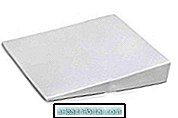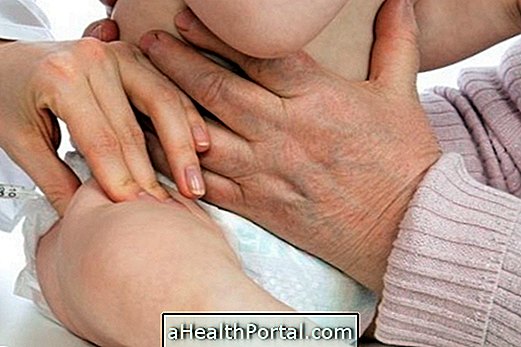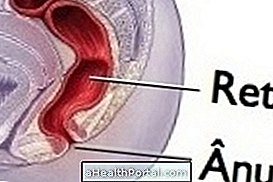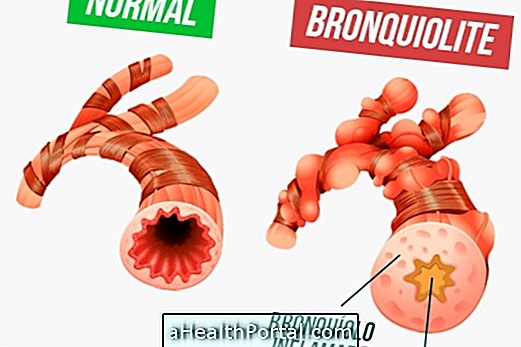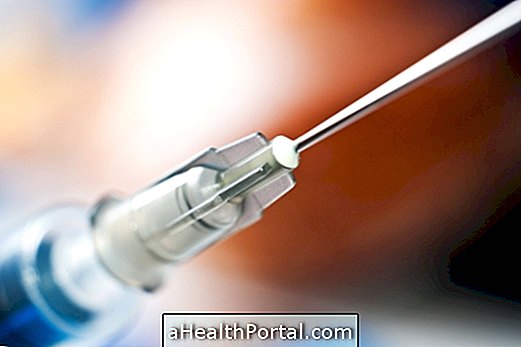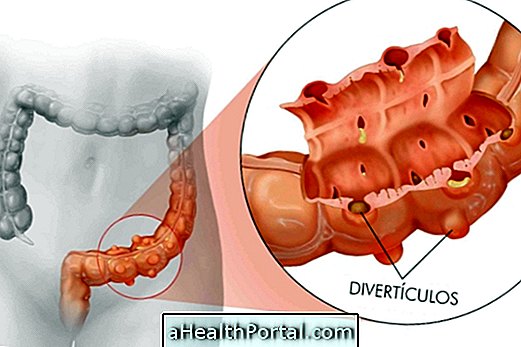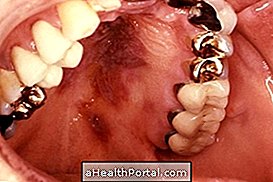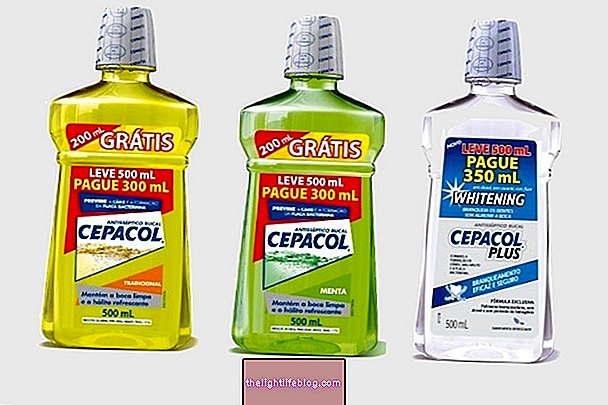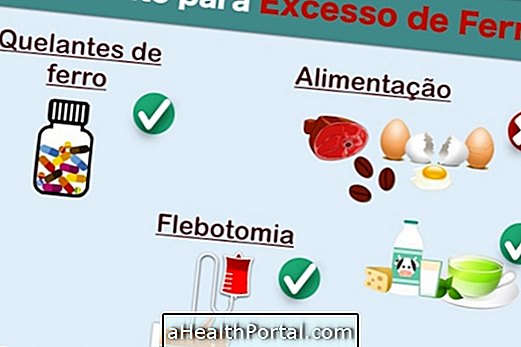It is normal for the baby to spin (regurgitate) until around 7 months of age, as the baby's stomach becomes easily filled, which causes a small vomit, also known as a gulp. This is something that happens more easily in newborns or small babies, because they have a smaller stomach, which easily becomes full.
The blowback happens when the baby's stomach gets very full, which causes the valve that closes the passageway to the stomach to open easily, which causes the baby to regurgitate the milk. In addition, gnawing can also happen due to the excess air in the baby's stomach, which happens in baby who swallow a lot of air during the feed. In this case, the air will occupy a large volume in the stomach, eventually pushing the milk up, causing a small vomit.
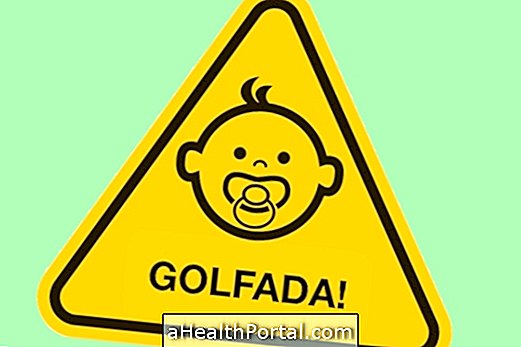
How to Avoid Golf
To prevent the baby from gnawing, it is important to prevent your baby from swallowing too much air during feeding or drinking large amounts of milk so your stomach does not get too full.
In addition, other precautions to avoid biting include putting the baby to burp after eating and ensuring that you will only lie down after 30 minutes, and it is also not recommended to perform rough movements after a feeding. Learn more in Tips to decrease baby playing.
When the Gulf Can Be a Problem
For it to be normal, the gulf of the baby must have a whitish coloration, and there may also be traces of blood, which indicate that the mother's nipples may be cracked, for example.
However, in certain situations the baby's gulf may not be normal, and it is recommended to consult the pediatrician when the baby:
- Difficulty gaining weight or losing weight;
- Do not want to eat;
- You are constantly irritated or show intense crying, especially after gnawing;
- Has excessive hiccups or excessive production of saliva;
- Has difficulty breathing after the gulf;
- It has gulf with greenish coloration;
- It becomes uncomfortable or restless during the feed.
When the gulf has some of these characteristics, this may indicate that the baby has problems with reflux or with bowel obstruction, for example, and in these situations it is important to consult the pediatrician or go to the hospital as soon as possible, so that the cause of the problem can be identified and treated appropriately. One of the problems with regurgitation is that it increases the risk of respiratory arrest or pneumonia, since the passage of the contents of the stomach into the baby's lung may occur.
Between 8 months and 1 year of age, frequent puffing in the baby is no longer normal, as the baby is able to adopt an upright posture and the food he or she eats is either solid or pasty, being more difficult to regurgitate because thicker.
